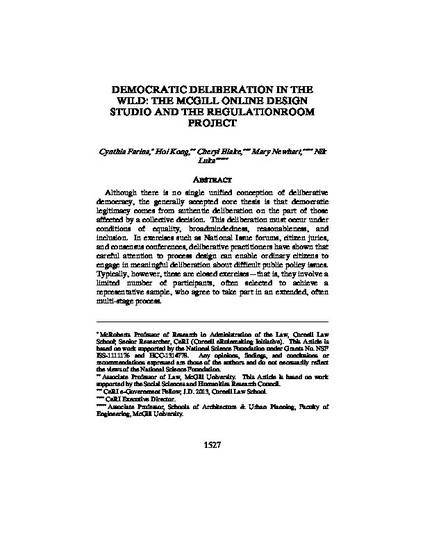
- Smart Cities; crowdsourcing; public policy; internet policy
Although there is no single unified conception of deliberative democracy, the generally accepted core thesis is that democratic legitimacy comes from authentic deliberation on the part of those affected by a collective decision. This deliberation must occur under conditions of equality, broadmindedness, reasonableness, and inclusion. In exercises such as National Issue forums, citizen juries, and consensus conferences, deliberative practitioners have shown that careful attention to process design can enable ordinary citizens to engage in meaningful deliberation about difficult public policy issues. Typically, however, these are closed exercises—that is, they involve a limited number of participants, often selected to achieve a representative sample, who agree to take part in an extended, often multi-stage process.
Available at: http://works.bepress.com/hoi-kong/4/
